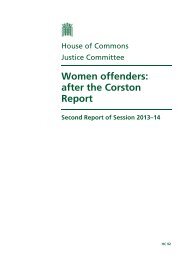Listen Up - Social Welfare Portal
Listen Up - Social Welfare Portal
Listen Up - Social Welfare Portal
Create successful ePaper yourself
Turn your PDF publications into a flip-book with our unique Google optimized e-Paper software.
listenup!Chapter 6 | 43Being socially inclusiveStaff were asked if they worked to ensure that theservices were equally accessible to all young people,including those from black and minority ethnicgroups (BME); lesbian, gay, bisexual and transsexual(LGBT) young people; refugees and asylum seekers;drug and alcohol users; and homeless people.It is mandatory for all public sector organisationssuch as the NHS and those that take public fundsin other sectors to record and monitor ethnicity.This is to ensure that young people from all ethnicgroups are equally able to access the services; wherea particular group or groups is under-represented,the organisation can then look at undertaking moretargeted work. Recording of ethnicity was carried outby all but one organisation in the project, althoughthis was a priority for review by that organisation.Organisations then need to obtain local data to seeif the breakdown of people accessing the servicematches the ethnic make-up of the local area. Thisdata can largely be accessed through local authoritywebsites or via the Office for National Statistics (ONS).It was not clear from the data collected and staffinterviews how many organisations in this projectwere making the comparison. It should be notedthat the data from local authorities and ONS can beseveral years out of date, because it is typically basedon the most recent census (at the time of goingto press, this was 2001), and there are particulardifficulties in obtaining data regarding the arrivalof new Eastern European migrants into differentlocalities. This can mean that organisations werereliant on word-of-mouth and local networks to gaina sense of local population changes and thereforeto ascertain whether they were meeting the needsof all young people in their catchment area. Thiscan be time-consuming, particularly for smallerorganisations with low staff numbers, and thosenetworks may not be available in all locations.Streetwise in Newcastle carried out a significantamount of work on ensuring socially inclusivepractice. They developed a strong monitoring systemand were therefore able to check whether certaingroups of young people were not accessing partsof their service; if so, staff could then take action toremedy this.Case Study“Streetwise liaise with local projects thatspecialise in dealing with particular groupsof young people such as young gay men orBME young people in order to ensure thatthere is not a gap in local service provision. ““The numbers of young people from BMEgroups accessing the project has recentlybeen greatly increased by the establishmentof the social group designed to attractyoung people from these groups.”Project worker, Streetwise, NewcastleCommunity Links in Canning Town is based in oneof the most ethnically diverse communities in theUK and they took a different approach in meetingthe needs of young people from groups which wereharder to reach:“Whilst workers recognise that some groups ofyoung people have specific needs, the projectsdo not have specific projects or group work forparticular groups and meet client’s needs through anintegrated and holistic approach.”Project worker, Community Links, Canning TownThe way that organisations decide to tackle theissue of how to approach working with youngpeople from specific groups is an area becomingincreasingly under the spotlight:
















